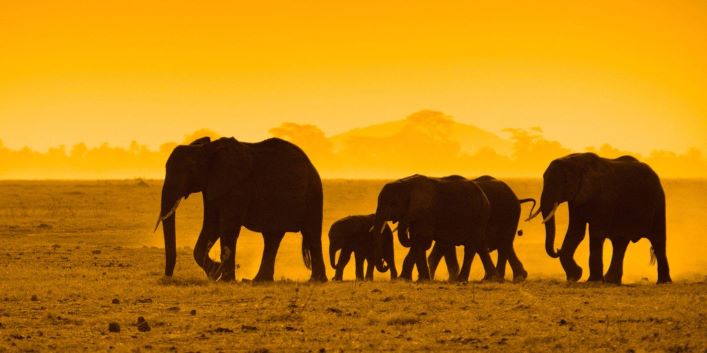The fate of 37 wild baby elephants – captured by the Zimbabwean government to be sold to Chinese zoos – will be decided this weekend. The Convention on International Trade In Endangered Species (CITES), an international treaty organisation that governs wildlife trade, will vote on Sunday to decide whether to introduce a worldwide ban on the live trade in elephants.
David Barritt, chief campaigner for the international animal welfare organisation Network for Animals (NFA) said that while many of CITES 183 members are in favour of a ban in the live trade, many are not. Among those not in favour of the ban include South Africa, Namibia, Botswana and Zambia, which profit financially from the trade. They say that elephants who live in their countries are theirs to do what they like with, and that includes zoo export, hunting and a trade in elephant ivory.
The vote has huge implications for elephants in general and for 37 Zimbabwe baby elephants in particular. The babies were captured in the wild at the Hwange National Park and are now being held in pens, awaiting export to zoos in China and Pakistan.
The capture caused outrage among conservationists because it is known to be intrinsically cruel; elephant calves are dependent on their mothers for up to ten years, even sometimes suckling that long and should never be removed from a family group.
Barritt says that tearing babies from their mothers and forcing them to spend the rest of their lives in zoo cages is morally indefensible.
“NFA works to make the world a better place for animals. The Zimbabwean government is doing its damnedest to make the world a place of sheer hell for elephants for the sake of making a quick profit, regardless of the long-term damage caused to bio-diversity. It’s unconscionable,” said Barritt.
Currently, CITES categorises zoo transactions as ‘non-commercial’, and allowable under certain conditions. Some 1,800 elephants were trafficked from Africa’s wildlife parks to zoos across the world in the period 1990-2015 and the trade has increased recently as nations like Zimbabwe and Zambia scramble for money.
Barritt added that NFA has confirmed from confidential sources within Zimbabwe, that the country is now in talks with at least one US zoo – believed to be the San Diego zoo – that is interested in buying baby elephants.
“US zoos are well aware that buying wild baby elephants will be extremely controversial in America, so they do not publicise what they plan. When we tried to get comment from the San Diego zoo, they simply ignored us. However, the fact that talks are taking place might be an indication that the US will vote to continue the trade, which is deeply worrying,” said Barritt.
Network for Animals has urged the COP18 delegates to drastically improve the protections given to elephants and unequivocally ban any and all trade in ivory and live elephants. Hosted at : web hosting South Africa
“It’s not clear who will win,” said Barritt. “but I want to be optimistic that we live in a world that will reject inhuman cruelty.”
Issued by: Network for Animals’ Chief Campaigner David Barritt








